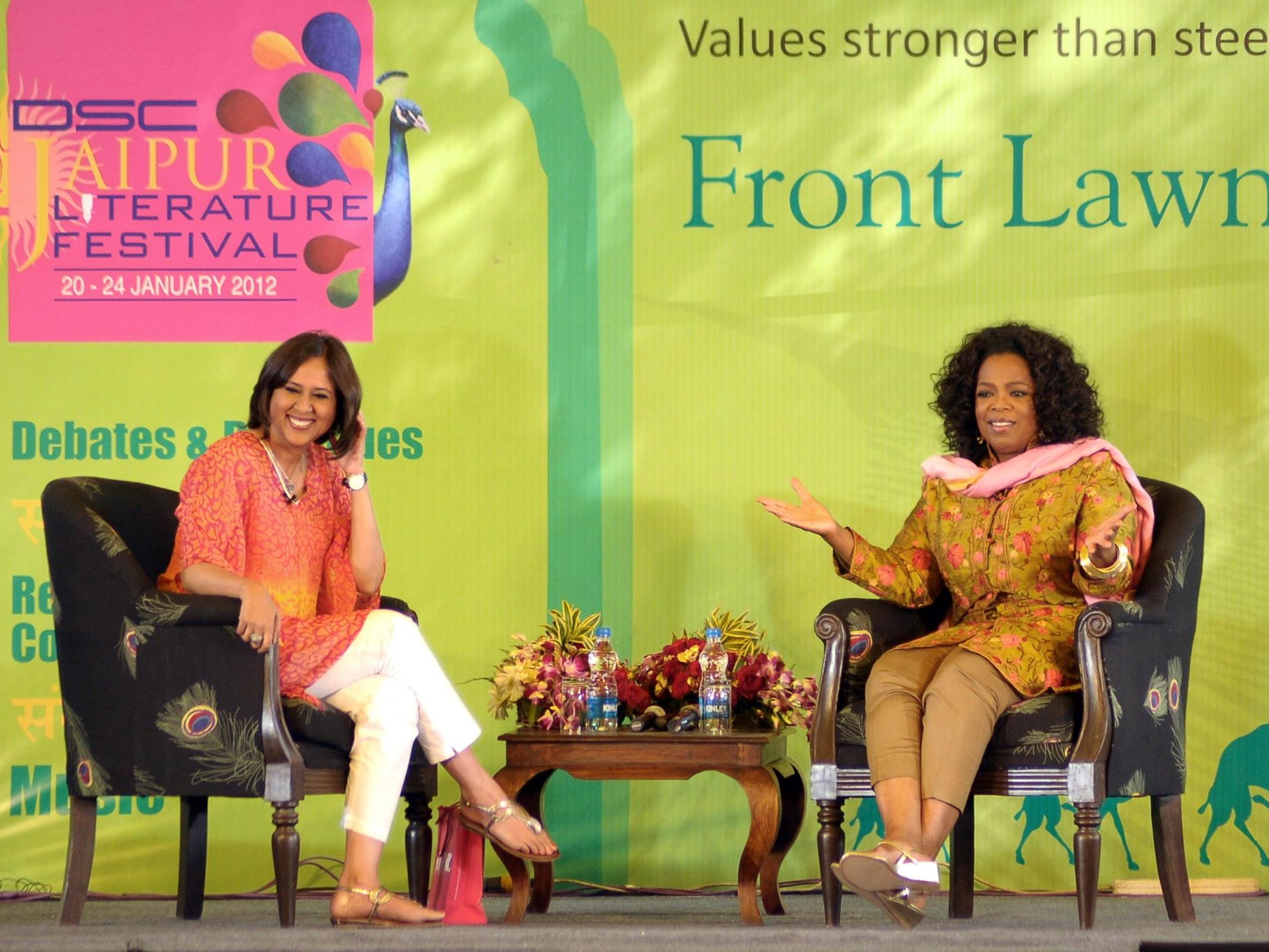As right-wing scare tactics sweep India, how do liberal institutions like the Jaipur Literature festival fit in?
Given Modi’s landslide victory in the general election, it’s unclear as to how the country’s progressive thinkers will get through to the majority of the population, writes Adam Withnall


Some of the world’s most successful authors descended on the dusty desert city of Jaipur in India this weekend for what organisers describe as the greatest literary show on Earth.
But while the likes of Howard Jacobson, John Lanchester and Elizabeth Gilbert indulged fans and promoted their latest novels, the festival has also become a key annual talking shop for India’s liberal elite.
Not everyone views it that way – in past years, Jaipur Literature Festival (JLF) has courted controversy by inviting speakers from the far-right RSS, the volunteer movement that underpins Narendra Modi’s ruling BJP party. In 2012, the festival was criticised for inviting Salman Rushdie and then effectively disinviting him because his safety couldn’t be guaranteed.
And memories of such episodes were brought up on Sunday when a group of anti-government protesters, part of the movement against a new citizenship law that excludes Muslims, were ejected from the festival by security.
In reality, the event is hardly a platform for right-wing views. Panel discussions on “the unravelling” of key public institutions under Modi’s watch, or the health status of the Indian Constitution, could fool an observer into thinking the country is united in outrage by the actions of the current administration.
One of the most raucous and lively talks was essentially a head-to-head between two speakers trying to out-do one another in their liberalism – Sachin Pilot, the popular opposition congress leader, and Rajdeep Sardesai, the outspoken TV anchor.
Sardesai, a natural crowd-pleaser, was roared on as he railed against all-comers – the opposition “bankrupt of ideas and leadership”, the “vindictive” administration of the day and a “toxic India… where anyone who criticises the government is told to go to Pakistan”.
But Pilot made a valid point: It’s all very well coming to JLF and soaking up the applause, but good luck trying to win an election in India today by standing on a stage as a politician and proclaiming such views.
Congress tried that in this year’s general election, and India emphatically voted instead for the Hindu nationalist Modi, handing him a landslide and the mandate to unilaterally strip Muslim-majority Kashmir of its autonomy (and its internet access).
Jaipur offers an opportunity to journalists covering Modi’s India – to assess the ideas and vitality of the country’s struggling left-wing. On this basis, with Pilot refusing to question the structure or really even the performance of his party, the prognosis doesn’t look good.
Throughout it all, however, it pays to remember just how unrepresentative such events are. At one of the final talks of the weekend, a man stood up to ask a leading question about a much-debunked idea – that madrassas in India are training Islamist terrorists of the future.
He was allowed to speak and then strongly rebutted by panellists who were roundly applauded for their efforts.
Yet there are millions, perhaps hundreds of millions, of Indian voters like that man who have absorbed Islamophobic rhetoric and, convinced majority Hindus like them are under threat, propelled Modi to power.
The real question, barely addressed this weekend, is how will the country’s progressive thinkers get through to people like that man and counter the rise of fear-based politics? It’s a question that needs answering, and not just here in India.
Yours,
Adam Withnall
Asia editor
Join our commenting forum
Join thought-provoking conversations, follow other Independent readers and see their replies
Comments